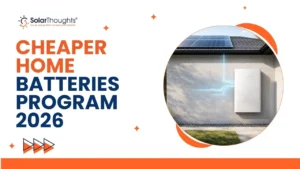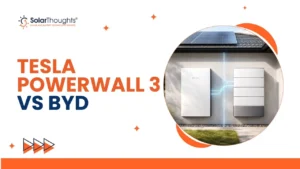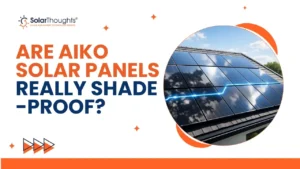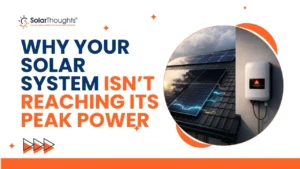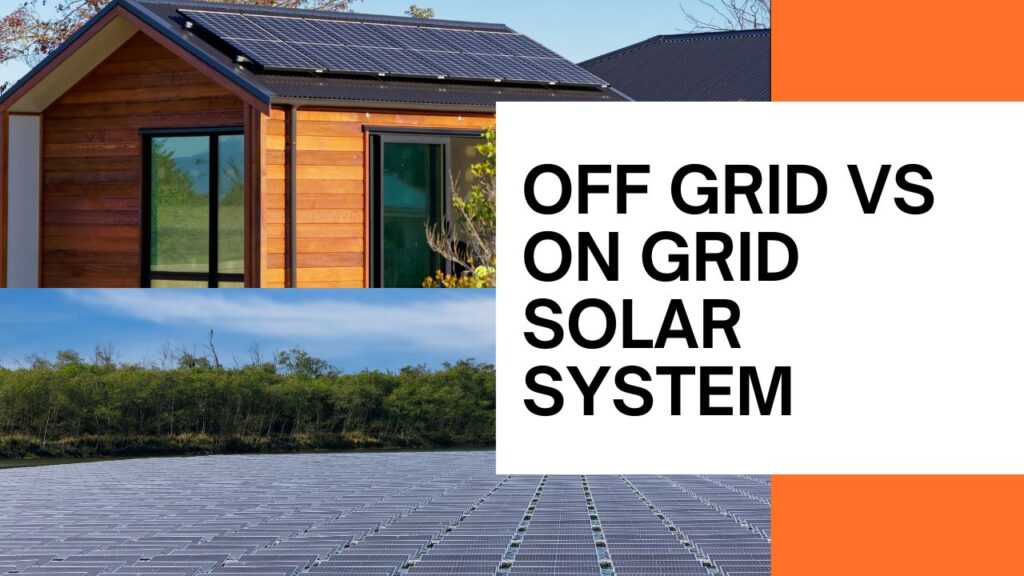
1) Electricity source
In Queensland, an off-grid system is one that is disconnected from the electrical grid. Thus, solar energy serves as the primary energy source for this system. When the Queensland solar panels are generating electricity, your home will have electricity. Only if you store the electricity generated by your solar panels in Brisbane, Queensland in batteries will you have power at night and on overcast days. Your sole sources of electricity while using an off-grid solar system in Queensland are the energy your solar panels generate and the energy you store from them. You are not connected to the grid and cannot access additional electricity if needed. For such occasions, you might purchase a generator.
Table of Contents
ToggleHowever, if you have an off-grid system, you won’t run out of electricity even if your Queensland solar isn’t working and you don’t have any batteries. You can use the grid to get electricity if your Queensland solar panels aren’t producing enough energy to power your house or place of business. With this type of solar system in Brisbane, you can be confident that your power requirements are met at all times.
2) Power Outage
Since off-grid solar is not dependent on the electrical grid, it is essentially unaffected by power outages. Your panels and batteries can provide you with a continuous power source in the event of inclement weather or a power outage on the grid.
Your Queensland solar panels are connected to the grid when you have an on-grid installation. For safety purposes, your solar panels also turn off when there is a power outage on the grid. Thus this system will not supply any power during a blackout. Therefore, you can think about adding batteries to your grid-connected solar system if you wish to have a power source in case of a grid outage.
3) Extra Energy
The quantity of extra energy you will have from your solar in Queensland depends on the size of the system, how much energy it uses, and when it uses it. Where this extra, wasted energy should go depends on the solar equipment you install.
Typically, off-grid solar systems are designed to produce some extra energy that can be stored in batteries. When the panels are not producing during the night or bad weather, this battery storage can be accessed and used. You can adjust the system’s size to produce enough additional electricity to meet your needs for energy all day and all night. When the weather is unfavorable for several days in a row, you can supplement your solar system in Queensland with additional batteries or power generators to meet your energy needs.
In Queensland, excess energy generated by on-grid solar panels can be fed back into the power system. You get paid by the utility provider for that electricity. In this manner, your energy bill savings increase. The on-grid solar system has this benefit over the off-grid one.
4) Power Invoices
An off-grid solar system eliminates the need for electricity bills. However, the additional equipment, such as batteries, which have a large initial cost, makes this configuration frequently more expensive.
However, even with a grid-connected solar system that meets all of your energy demands, you will still have to pay for peak hour charges, a service fee, and any additional usage from the grid beyond your net metering credits. These mandatory costs will appear on your power bills.
Grid-connected or not, all types of solar systems are beneficial for energy savings and independence. Which system type is best for your home or company, however, will depend on your energy goals and budget. This conversation has helped you understand the main differences between off-grid and on-grid solar setups.
Get professional solar guidance and some of Brisbane’s top solar panels and solar inverters by getting in touch with SolarThoughts with Expert Solar Panel Installation in Brisbane!

